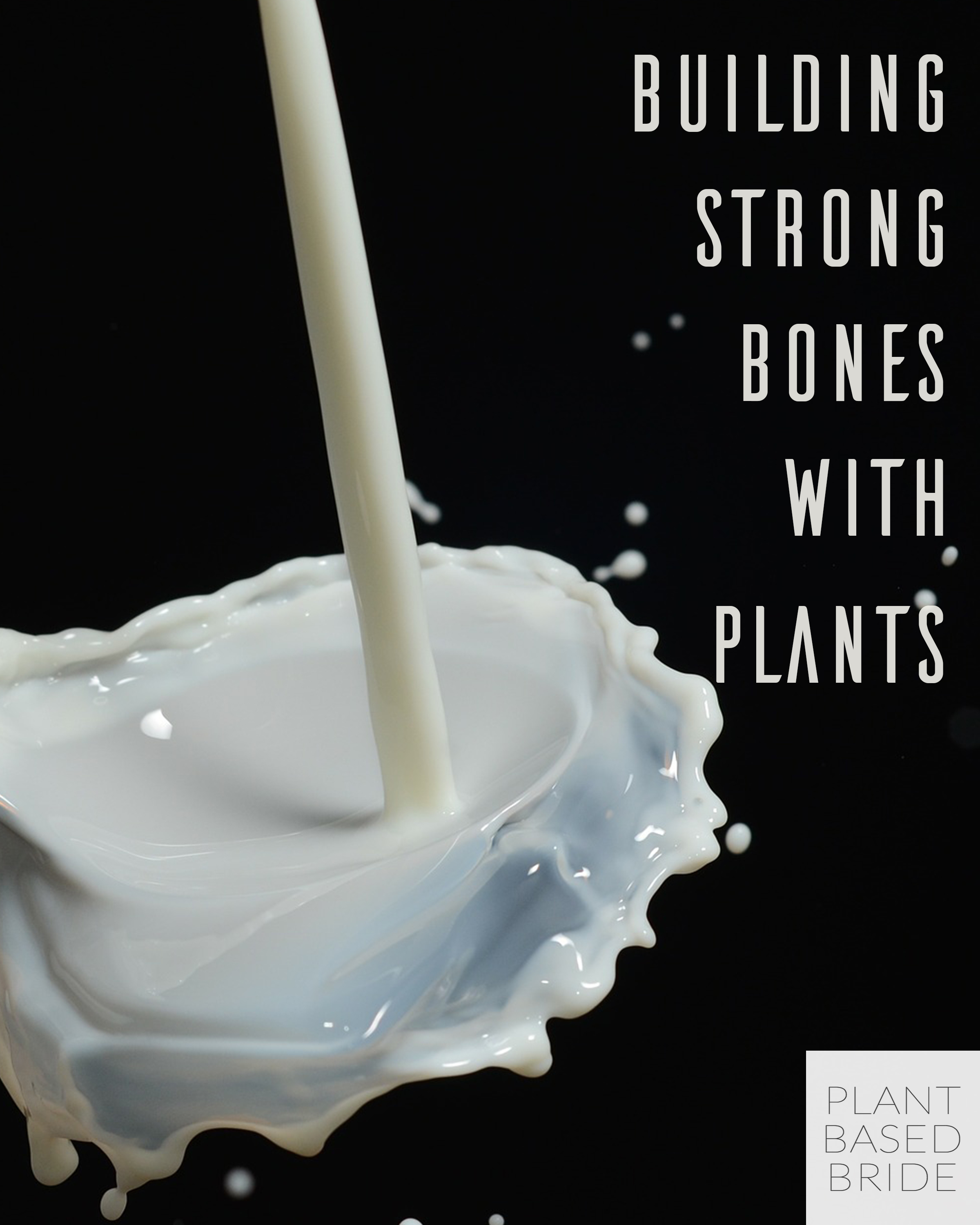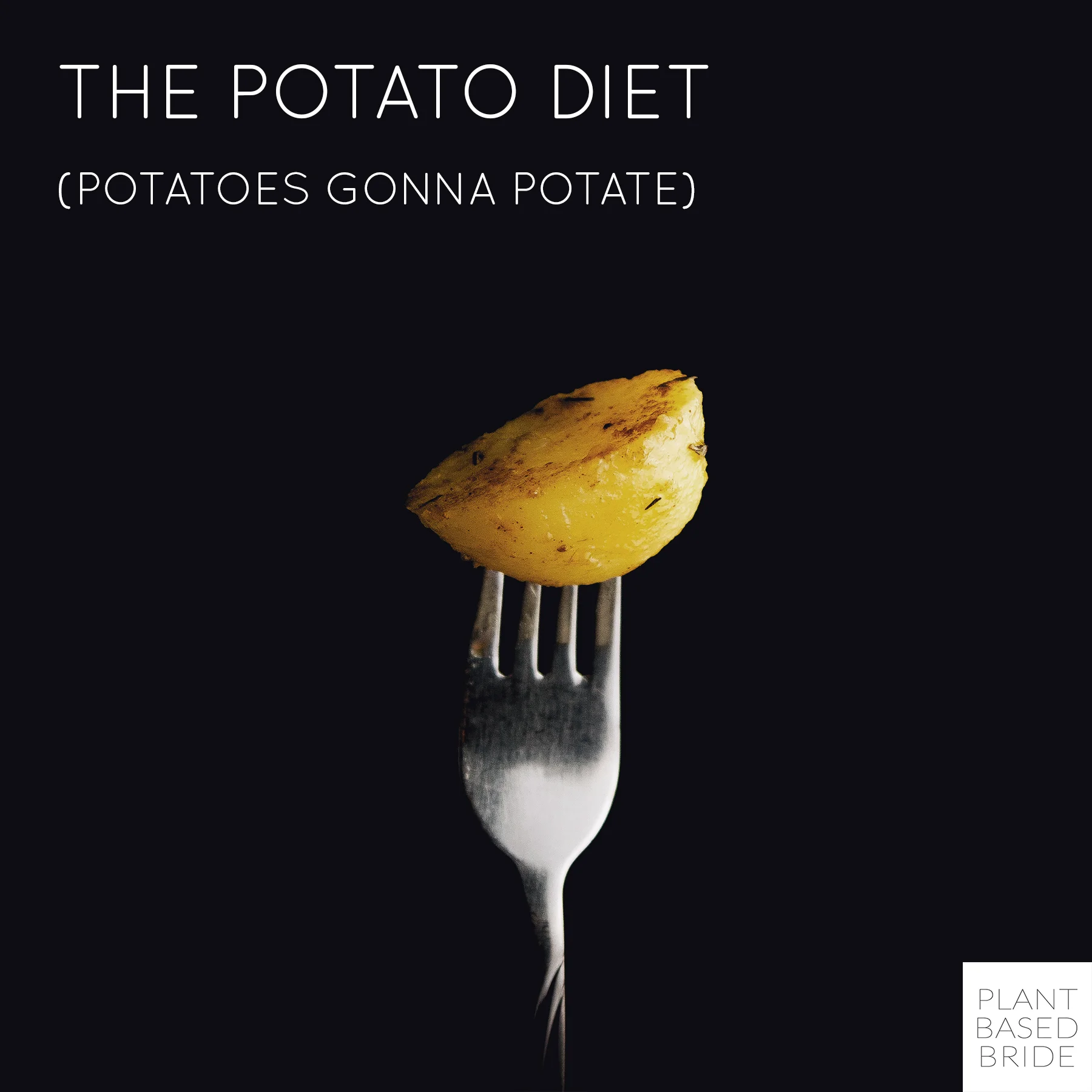Building Strong Bones with Plants
Calcium is important, everyone says so. "Get your calcium for strong bones!" they say. And where do you get calcium? If you ask the average person, they'd confidently say "From milk!" If that's the case, how come vegans aren't breaking bones from a minor fall or developing osteoporosis at astonishing rates? The answer is simple.
Milk is not the only source of calcium. It is, in fact, not even the best source.
Why We Need Calcium
When most people think about calcium, they think strong bones. And while calcium is a mineral stored (mostly) in our bones and teeth, supporting their structure and hardness, it is utilized in the body for so much more. Calcium is needed for muscles to contract, nerves to carry messages between the brain and the body, blood vessels to move blood, and releasing the hormones and enzymes that control virtually all function in the body. As you can see, calcium is a heavy hitter that you REALLY want on your team.
How Much Calcium A Day?
Calcium recommendations are as follows:
Aim to reach your recommended daily intake but don't overdo it! Calcium overdose (usually due to supplementation) can cause abdominal pain, constipation or diarrhea, headaches, nausea and vomiting, irregular heartbeat, and even a coma.
The Trouble with Milk
Milk consumption actually causes calcium loss from your bones. Yes, you read right. But if cow's milk causes this detrimental effect, why doesn't everybody know about it? I can see why a lay-person might be confused. At first glance, cow's milk seems like a great source of calcium. After all, it contains quite a lot at 300mg per cup. But cow's milk, especially milk that has been pasteurized, contains calcium that is difficult for the human body to absorb. And that's not all. Cow's milk, like all foods containing animal protein, has an acidifying effect on the human body. Why do we care about the body's pH? Most people don't, but your body certainly does. The human body must remain within a very narrow pH range to maintain normal functioning, with the ideal pH registering at 7.4 on the scale. This means that the body must remain in an alkaline state. If it doesn't, a syndrome called acidosis may develop, common side effects of which include fatigue, headaches, insomnia, breathing difficulties, heart palpitations, hot and dry skin on the hands and feet, and supported growth of abnormal cells.
So what happens when the animal protein in milk lowers our pH below the optimal level? Your body, recognizing the need to alkalize, goes in search of a substance to do the job. It finds phosphate, which is great at neutralizing strong acids and bases. And where does your body find phosphate? In the calcium phosphate salts that are the structural component of your bones and teeth. The body pulls the calcium phosphate stored in the bones out into the blood to alkalize it, using the phosphate for that purpose and excreting the calcium in the urine.
That's right, when you eat or drink animal products, including cow's milk, you cause calcium to be pulled from your bones and peed out.
Over time, this drawing on calcium phosphate reserves to neutralize the acid-forming effect of animal protein can lead to structural weakness in your bones and teeth (or osteoporosis). Not only that; increasing your calcium excretion through the genito-urinary system can raise your risk of developing calcium-rich kidney stones.
Scientific studies have proved this effect time and again. So why isn't it common knowledge? That, my friends, is a whole other post.
Foods High In Calcium
Now we know that cow's milk is not the best source of calcium. So what is? Here is a table of select vegan foods high in calcium:
My recommended daily intake of calcium as an adult between the ages of 19 and 50 is 1,000mg. 1 cup of tempeh (184mg), 1 cup of kale (179mg), 1 cup of collard greens (357mg) and 8 oz of a plant milk (300-500mg) is enough to provide my daily calcium needs.
Getting Enough Calcium on a Vegan Diet
Calcium is essential. No one will argue with you on that. But cow's milk is NOT the ideal source, by any stretch of the imagination. Vegans actually have a bit of the upper hand on this one as our lack of animal protein intake reduces our calcium losses in comparison with an omnivore. Still, at the risk of sounding repetitive here, calcium is a very important mineral and must be present in the body in adequate quantities. Be sure to eat your greens and a variety of other plant based foods high is calcium, and supplement if need be. Remember that age, vitamin D levels, alcohol and caffeine consumption and various other factors can affect calcium absorption. Eat a variety of plants, whole, and you'll be doing better than 90% of the milk-guzzling population.
Until next time...
Do you monitor your calcium levels and intake? What is your favourite high-calcium food? Let me know in the comments below!
Be sure to subscribe to the Plant Based Bride newsletter (at the bottom of this page) so you never miss a post!
Sources
- https://ods.od.nih.gov/factsheets/Calcium-Consumer/
- http://www.budwigcenter.com/how-to-maintain-a-perfect-ph-balance/#.VcvB03i6_dk
- http://saveourbones.com/osteoporosis-milk-myth/
- https://drbenkim.com/ph-body-blood-foods-acid-alkaline.htm
- http://aje.oxfordjournals.org/content/139/5/493.abstract
- http://www.vrg.org/nutrition/calcium.php
- http://www.livestrong.com/article/28213-can-person-overdose-calcium/
























